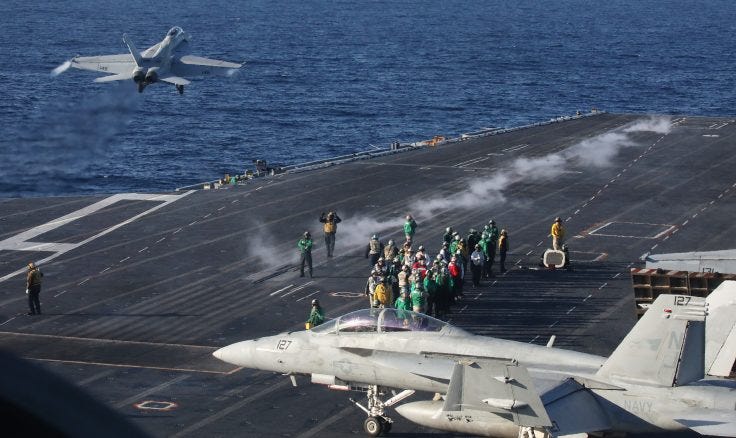How to Prevent a Fiasco in the Far East
The legacy and lessons of Task Force Smith
Yesterday marked America's 249th birthday. Today marks the 75th anniversary of a less cheery event: the Battle of Osan, during which an American infantry unit, Task Force Smith, was overrun by the North Koreans.
The defeat, the Hudson Institute's Mike Watson notes, led to an unofficial Army mantra: "No more Task Force Smiths." It's not clear, however, that Washington is adequately prepared to stop history from repeating itself. "To be sure," writes Watson, "our military is a highly professional force, and the Israelis and Ukrainians are demonstrating just how effective much of the U.S. arsenal is. But the Pentagon may not be moving fast enough."
How can that change? Watson lays out some options below:
One option, which today’s prioritizers favor, is to sharply reduce or even cut off support for partners and allies in theaters they think are not vital. Many of them also lamented American support for Israel’s air campaign over Iran. They lost that argument, but halting deliveries to Ukraine of air defense missiles, artillery shells, and other munitions even as Russia ramps up its air attacks on Ukrainian cities was an important victory for this camp. Evidently, they think the risks of tolerating Iran’s nuclear program or inviting further Russian aggression are acceptable.
Another is to try to engineer a new Sino-Soviet split. Acheson was not wrong in January 1950: Beijing and Moscow eventually fell out. But it took another decade and a half before the wrath, hatred, and anger—righteous or otherwise—of the Chinese people developed toward Moscow. There is no indication today that the Russians are close to breaking with the Middle Kingdom.
Communist China studies the Korean War obsessively, largely because its forces have not otherwise squared off with Americans. Hopefully, Beijing learned that while the American people can grow uninterested in global affairs for a time, they will respond in fury when attacked. Permitting aggression in one theater can also set back Beijing’s other goals: Taiwan looked vulnerable before the North Koreans attacked, but once the United States surged forces to the western Pacific, attacking the island became impossible.
But just as many Americans learn the wrong lessons from history, our adversaries can too. Better to keep the military ready, just in case.
READ MORE: How to Prevent a Fiasco in the Far East








Welcome to Substack. I've been thinking the role of the US military a lot since MAGA took over. Was a neocon and now mostly agree with the anti-neocons. Israel has been developing their own weapons for a while and Ukraine more recently but with powerful effect. Maybe they are both better off without our help. It will be harder for them, but we have mostly kept them back by preventing them from taking the actions they wanted.
This goes along with the Ramaswami doctrine, as he proposed during his run for president.
History repeats itself when decision makers forget the painful lessons of the past.